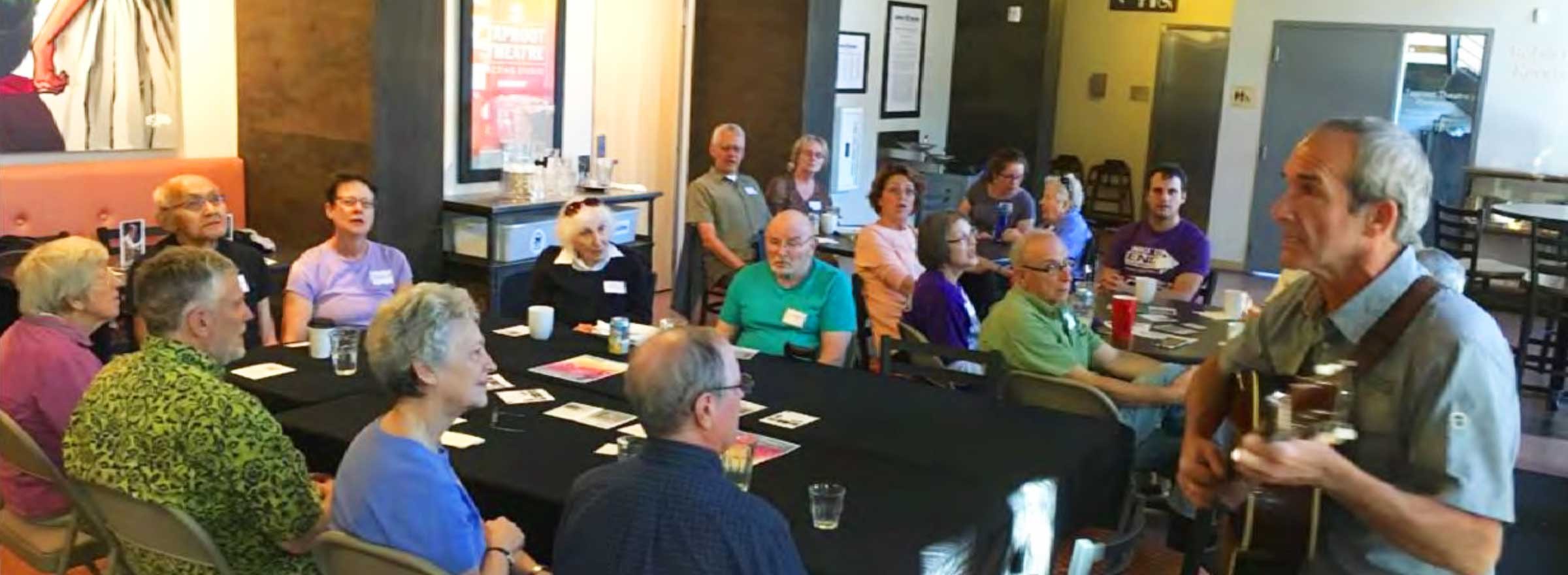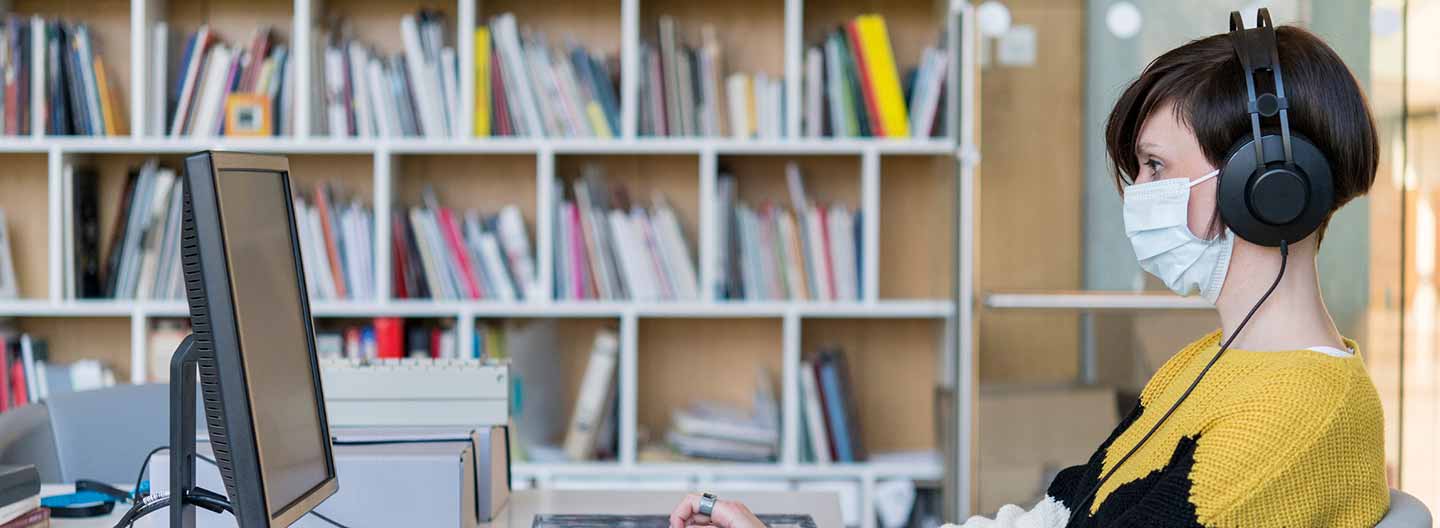With memory loss affecting 40 percent of all U.S. adults over the age of 65, an increasing number of individuals and the loved ones who care for them are finding themselves isolated from the life that they once knew. Knowing that this significant population of people wasn't able to utilize many of their traditional services, public libraries started to look for a way to integrate this group. In 2013, they came upon the idea of Memory Cafés — a support group with a special twist.
What Is a Memory Café?
According to the National Network of Libraries and Medicine, A Memory Café is "a social gathering place for persons with memory loss, mild cognitive impairment, early Alzheimer's, or other dementia and their family and friends." These social gatherings were started in the Netherlands in 1997 as an opportunity for people experiencing memory loss, and their caregivers, to enjoy time with others who understand their situation. According to the Dementia Action Collaborative (PDF) of Washington state, Memory Cafés "combat the isolation that can occur for those with dementia and their family members." Libraries have been eager to adopt this special programming as a way to get their community members back into society.
Feelings of confusion and embarrassment about not remembering things often make those with memory loss prefer to stay at home, which can lead to profound boredom and loneliness. The family and friends who serve as caregivers for these individuals also frequently feel separated from the rest of the world. They must stay close to home with the loved ones for whom they are responsible.
How Memory Cafés Work
In these safe and welcoming social gatherings, Memory Café participants are invited to spend time visiting, enjoying refreshments, sharing experiences, and relaxing in a low-stress, comfortable environment. Often, visitors might not even know who in the group is affected by memory loss and who is a caregiver because everyone participates in the activities and has a good time.
The library staff who run and coordinate the event are trained in interacting with people with dementia to ensure that everyone involved enhances the feeling of security. Additionally, many libraries that offer this service work closely with professional organizations such as the Council on Aging, the Alzheimer's Association, and local nursing homes to develop programming or create staff training.
Additional Activities
Along with the opportunity to socialize, Memory Cafés provide additional activities during each session. Often there will be games such as puzzles or crosswords available to play, in addition to a performer or interactive experience. Activities range from the entertaining to the instructive. Librarians have coordinated visits from Humane Society animals, ukulele lessons from a music studio, singalongs, improv lessons from local performing arts centers, and telling one's life story to a volunteer scribe.
These social and learning opportunities prove to be a highlight of many people's lives. An attendee at Denver Public Library's Memory Café said, "This allows us to get out of the house and have a very stimulating time. The other thing is that we've developed friendships here." Another commented, "Memory Café has many different aspects, so when we get here, my husband can enjoy everything, maybe even things he didn't know he could enjoy or try."
Participant Experience
This program has helped participants feel connected, engaged, and appreciated — for many, for the first time in a long while.
The following quotes from the Denver Public Library's café attendees about their experiences at the program illustrate the powerful effect that the chance to get together with understanding people at this event can have.
- "Dementia can be a cruel ride sometimes. This is the first thing to grab my interest since all this started."
- "Mom is aware of her communication challenges, but at the Memory Café she can just relax and be herself."
- "It feels like a date!"
- "We begin to know the other people that are in it. So, it begins to be a small support community."
Love Comes from Community
Memory Café participants build friendships and community, learn new and interesting skills, rediscover a zest for life, and just get to be themselves with total acceptance. Facing memory loss can be a difficult, life-changing situation. However, having friends and support to help you through it can make all the difference. As activist Dorothy Day once said, "We have all known the long loneliness, and we have learned that the only solution is love and that love comes with community." As always, our community is often right in our local libraries.
This article originally appeared on Medium.com/EveryLibrary. To find out more about EveryLibrary and its mission to help libraries across the country, visit everylibrary.org.
About the Author
Brianna Austin is a public librarian, writer, and traveler. She's currently studying the libraries of South America and is a guest blogger for EveryLibrary. Her area of expertise is in early literacy and working with caregivers of young children to promote effective early reading skills.






